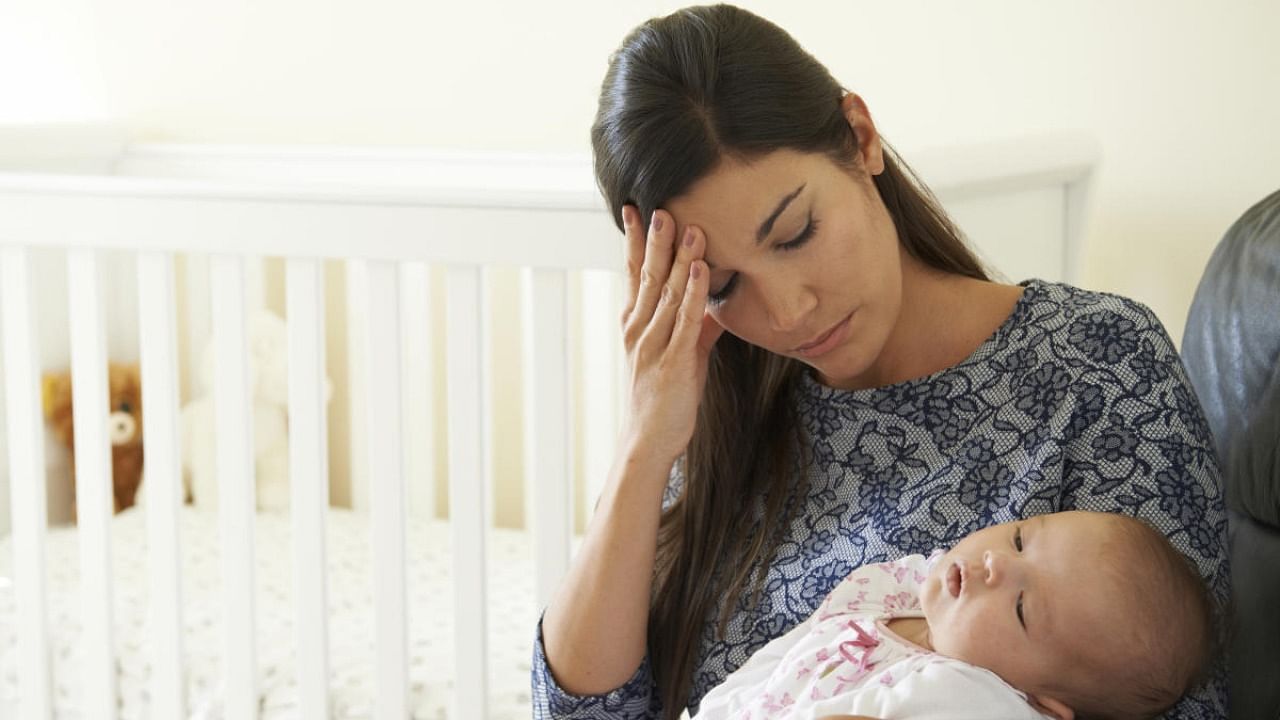
The tragic death of Dr Soundarya Neeraj, which police said may be linked to postpartum depression (PPD), has renewed focus on a condition that is said to affect as much as 22% of new mothers in the country.
Soundarya, former chief minister B S Yediyurappa's granddaughter, was found hanging in her house in Bengaluru on Friday.
According to practising obstetricians and gynaecologists, PPD is widely prevalent but not always detected because few women visit health facilities for post-pregnancy checkups.
Dr Sheela V Mane, past president, Bangalore Society of Obstetrics and Gynaecology, said PPD is caused by the withdrawal of hormones, such as estrogen and progesterone, after delivery. This, she said, causes psychiatric effects.
“Every new mother experiences postpartum 'blues' which is a drop in the level of hormones within two weeks of delivery," Dr Sheela said.
"This causes changes in the brain and behaviour, leading to mood swings, anxiety, crying spells and insomnia. If the condition becomes aggravated or if there is a hidden problem such as a history of depression, it can lead to new mothers being unable to cope with the stress.”
In some instances, the condition causes some mothers to harm their baby, she added.
A 2017 review of 38 India-based studies involving 20,043 women, which has been subsequently cited by the World Health Organization (WHO), noted that the estimated pooled prevalence of the condition was highest in south India (26%). This was followed by east (23%), south-western (23%) and western regions (21%). However, most of the studies (16) had been done in south India.
Dr Sheela said that a supportive family structure at home to provide psychological support is key in preventing the condition from getting aggravated. At the same time, there is no guarantee that a loving family atmosphere will safeguard a new mother from the effects of hormonal imbalance.
This was the case with 32-year-old Aisha (name changed), a new mother, who developed tendencies for self-harm despite having a supportive family and spouse.
Her treating obstetrician and laparoscopic gynaecologist Dr Beena Jeysingh of Manipal Hospital (Sarjapur Road) explained that Aisha had come in about 10 days following delivery, crying without reason and complaining of feeling useless.
“She eventually revealed feelings of causing self-harm or harm to the baby," Dr Beena explained. "This case was remarkable in the sense that she had a loving family around her who were of great support to her. There was no way to predict that this particular case would develop such a postpartum reaction. It all depends on the individual body’s reaction to hormonal withdrawal."
In 2002, PPD had also prompted the daughter of a prominent Union minister living in Bengaluru to take her own life, 10 days after giving birth to a baby boy.
Watch latest videos by DH here: